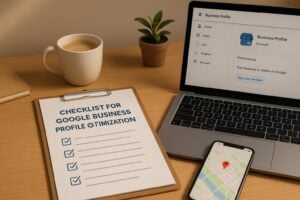For the small business owner, investing in local SEO is the best way to start attracting more customers.
Essentially, small business SEO is what helps people within your local community find you on search engines such as Google, Yahoo, and Bing.
With 50% of local searchers visiting a store within a day and 18% of those searches leading to a sale, it makes perfect sense to start your local SEO journey for your business today.
Here are 30 local SEO tips that will help your local business be seen in 2018!
The SEO tip run-down: a quick primer on the basics
1. Make sure your title tag is the correct length
As a general rule of thumb, the length of your title tag should be between 50-60 characters. That way, the title of your web page won’t get cut off and appear incomplete in Google (and other search engines) results.
2. Write a meta description that works for Google
Ironically enough, Google only puts a page’s meta description tag some of the time on its search results.
They will pull different content from the web page if they feel it better matches a searcher’s query. This means that it’s always a good idea to put actionable tips and variations of your keyword throughout your content.
It is still recommended to write a compelling meta description for the times that Google uses it in the search results. Remember, if your meta description appears on Google’s search results, it’s what will help users decide on whether they should visit your website.
3. Avoid repeating your web page titles
It’s essential to create a unique page title for every page of your website. Duplication is a big no-no in Google’s eyes, and they themselves have said not to do it.
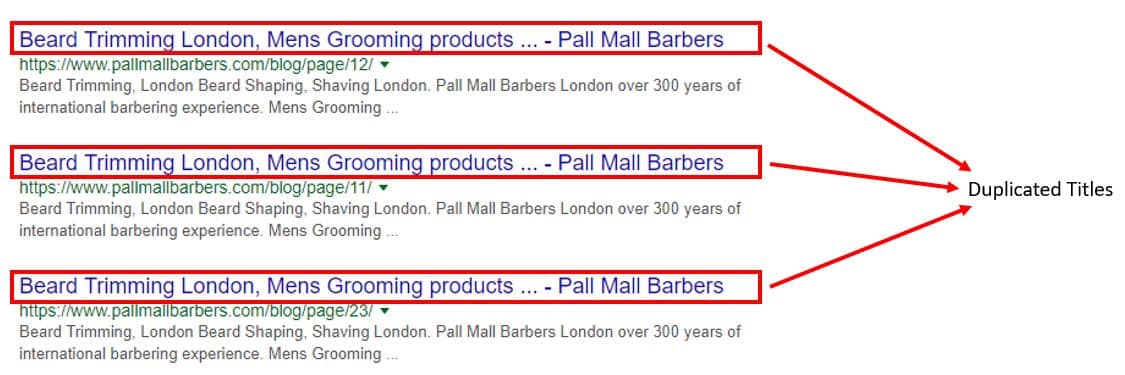
4. Insert your target keyword into your H1 & H2 titles
It is advised to incorporate your exact keyword phrase into your page’s H1 and H2 tags.
However, if the page already feels too optimized with the exact keyword phrase, replace your exact keyword with a synonym or long tail keyword instead in the H1 and H2 tags.
5. Put some relevant ‘anchor text’ into your content
An anchor text is the text that is clickable in a hyperlink.
When putting a link in your website content, make sure that the anchor text is relevant to the content to both your page and the page you are linking to. This helps ensure relevancy which is a ranking factor assessed by Google’s ranking algorithms.
6. Consider trying some GeoTagging
If your business covers a wide range of suburbs, geotagging might prove to be extremely beneficial in optimizing your content for relevancy.
GeoTagging essentially allows you to mark coordinates within your website content thus making multi-location management and identification a lot easier.
7. Install some SEO plugins into your CMS
For those who find SEO for small business owners overwhelming, you’ll be thrilled to know that several SEO plugins and tools can help you improve your local SEO as well as evaluate your SEO impact.
As always, there are free versions and paid versions of these plugins, and it entirely depends on your position and needs as to which version would be a good fit for you.
We recommend using YoastSEO as an on-page SEO plugin and BrowSEO to help evaluate your SEO impact.
8. Describe the images in your content with alt text
When writing an image alt text, approach it as if you were writing a caption while incorporating your keywords to maximise your local SEO.
9. Be sure to run a check on Schema.org
Make sure that your schema.org marked content is relevant to the way you want your website to be portrayed, as it influences the way search engines crawl your website’s pages.
You can use Synup’s Schema Scanner to check relevancy as well as to find out which pages of your website does not have schema.org installed.
10. Monitor the engagement of your users
It’s important to track the way your users interact with your small business online, as this helps you understand what aspects of your site works and what doesn’t.
Learn how you can utilise tools to help you track and monitor user experience.
11. Create location citations
A local citation is primarily a platform containing all the vital information about your business such as the name, address, phone number, description, photos, reviews, and so on.
It’s the critical element for any local business to gain maximum exposure online.
These local citations will help your local website rank better on Google and other search engines. Some good local citations include:
-
- Major local business data platforms such as Google My Business (be sure to verify your GMB listing through the verification postcard), Acxiom, Localeze, Infogroup, etc.
-
- Geo or industry-specific platforms such as the Chamber of Commerce or professional associations and guilds.
- Web publications such as blogs, news sites, maps, government databases, etc.
12. Check on NAP Consistency
It is paramount that your Name, Address, and Phone Number (NAP) of your business is consistent across the internet.
This means visiting old citations and fixing them if there are any inconsistencies.
Not only will this help customers find accurate information but also improve your local SEO as search engines such as Google greatly value consistency.
13. Claim your business listing
Where your business is listed or mentioned online, be sure to ‘claim’ that business listing as yours to gain ownership and authority over it.
Not only will this help improve your local SEO, but it will also help more potential customers find your business.
14. Delete duplicate listings
Duplication is a sign of inconsistency and is heavily frowned upon by Google and other search engines.
Not only will a duplicate listing affect your local SEO negatively, but it also disturbs your business credibility due to replication and unnecessary repetition.
Be sure to remove any duplicate listings to avoid any unwanted negative impacts on your local SEO.
15. Capitalise on industry-specific directories
If your business is part of a broader industry, you can maximize your local SEO exposure by capitalizing on online industry-specific directories.
Not only will you gain a massive positive impact on your local SEO and website ranking, but it’s also a great way to connect with industry influencers and experts within your niche.
16. Use a lot of images
For business listings that allow images to be attached, such as Google My Business, add as many images as you can.
Images are one of the best ways to engage users and increases the likelihood of an action. The more actions there are, the more authority your listing will gain and in turn the better local SEO rankings your website gets.
17. Create a virtual tour
If there’s one thing that can outdo a bunch of images in a business listing, it’s a virtual tour of your business itself.
18. Write a strong ‘about us’ section
The “About” section of a business listing is critical in building trust among your target audience and potential customers. By simply having compelling content that sells your business in a way that touches the local community, you will be off to a great start especially if you’re looking to turn those views into action.
19. Include tags in your business listings
In some local citation listings, you can create anchor text links that point to other landing pages within your website. For example, if you’re a dentist, you could make an anchor text link for “dentures” to your dentures landing page within your website.
20. Get reviews from happy customers
How many times have you looked at a review for a business and it helped you decide whether or not to purchase from the business? Put simply, over 88% of consumers trust reviews from other consumers when making a purchase decision.
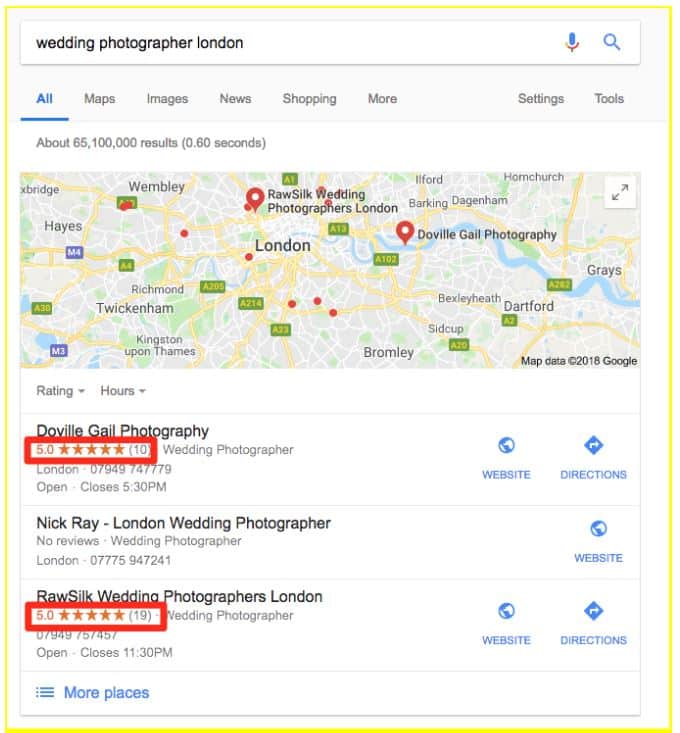
By increasing the reviews in your business listings, you’re effectively building authority and trust in your brand name in the eyes of your customers.
Building effective content for online marketing
21. Optimise your homepage for conversions
Your homepage is the key to driving sales. It is also the digital face of your entire business.
By focusing on creating a homepage that is aimed to increase conversions on top of enhancing trust in your brand name, you are essentially building a strong website purposed for building a successful business.
22. Create inner-city landing pages
For businesses who target different areas and suburbs, a great way to maximize on your local SEO potential is by creating inner city landing pages. These city pages increase your business relevance and local SEO authority for the target location.
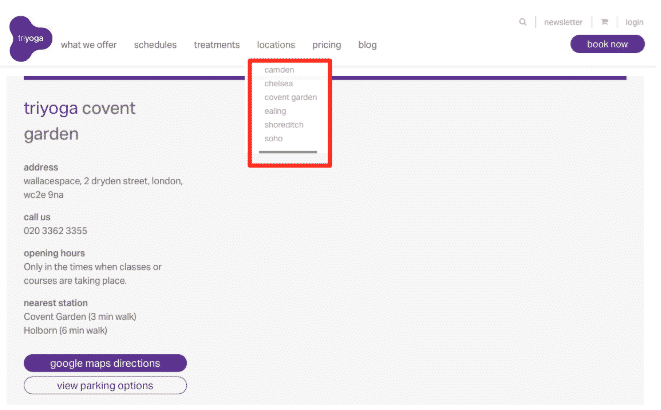
Be sure to include your Google My Business listing in your city page to help increase relevancy and boost link juice.
23. Place your keywords within the first 100 words of your long-form content
Although it’s an old-school tactic, it still works like a charm. Placing your keyword within the first 100 words of your page content helps visitors know they’re in the right place and also helps boost your on-page SEO.
24. Remember: people love info-graphics
One of the best ways to engage visitors is by using visual content, and nothing explains and informs a person better than an infographic. Oh, and they also help in your SEO and search engine rankings.
We recommend using Canva which is a great platform to create amazing infographics.
25. Start a company blog on your website
You can create compelling blog content that engages your local audience by focusing on local news events that are relevant to your targeted location.
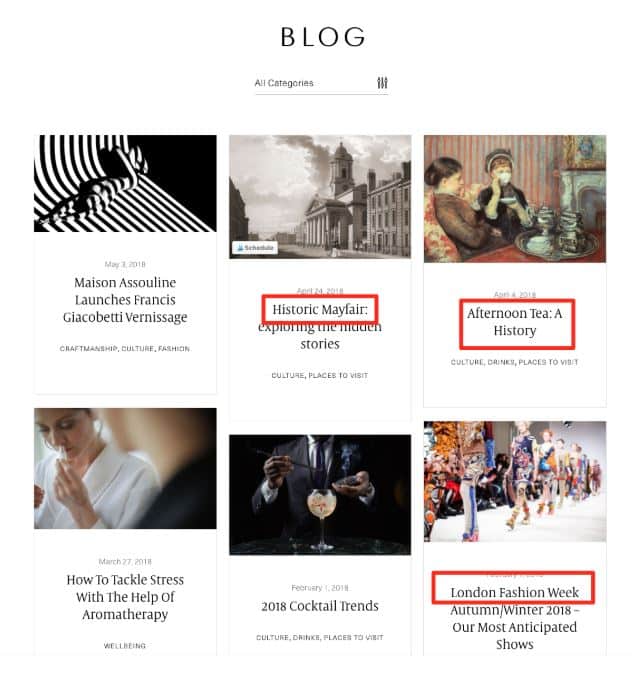
To truly maximize the outreach of your blog, share the content on your social media platforms as well as your local business citations where able. For example, Google My Business listings allow you to add a post which increases your location authority and engagement with your local audience.
For more detailed info about Google My Business, read also our step by step definitive guide on how to list your Business on GMB.
26. Try to create content that ‘goes viral’
Imagine being able to create a blog post so informative and engaging that you attract hundreds of thousands of organic traffic visits based on your one blog post.
To start yourself off in a good position, check out the trending topics within your niche using tools such as Google Trends to find out what the hottest topics you should be talking about are.
27. Re-purpose your content into different media formats
One of the most helpful things to remember when it comes to publishing content online is that people don’t always read everything you write.
Because of this lack of attention span and inability to absorb information, it gives you a great advantage to reuse your best content by creating different formats of it such as infographics, podcasts, presentations, posts, videos, and so on.
28. Don’t forget about YouTube!
Not enough businesses take advantage of Youtube as a form of local SEO marketing. By simply repurposing your content and turning it into a video. To optimize the video, use your keywords in the title and description, put in a link to your website, and include relevant tags.
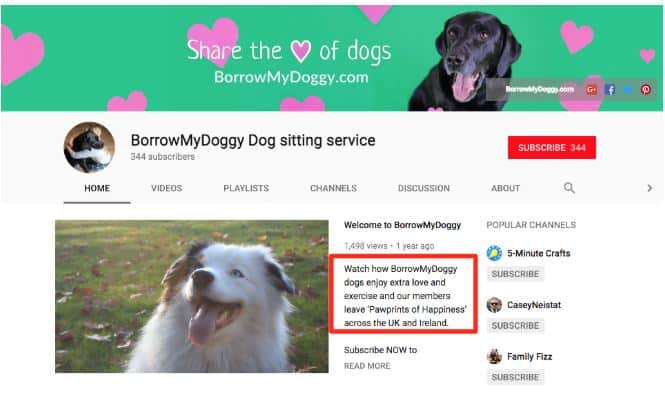
Make sure you write a great description that will compel the viewer to act upon your call to action and get in touch with your business.
29. Diversify the content you publish
To keep your content exciting, diversify it! Whether you encourage guests to post on your website, publish an interview, incorporate infographics or videos, having different types of content will increase the engagement of your visitors.
Below you can see BorrowMyDoggy, a service that connects dog owners use a picture of a dog on their Twitter profile.
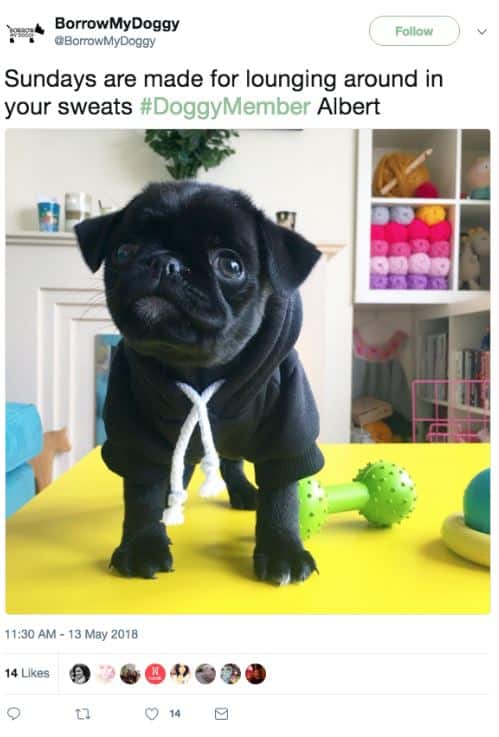
30. Make sure your files have appropriate names
Whenever you upload any files such as eBooks or images onto your website, be sure to name them appropriately.
For example, if you’re a real estate company, it’s easier for Google to crawl an eBook titled “how-to-negotiate-property.pdf” compared to “eBook.pdf”.
Develop your own small business SEO action
Last but not least, try to make everything as simple and easy as possible when implementing your small business SEO action plan.
From navigating your website with ease to making the sharing process straightforward, having a structured website isn’t just good for your website visitors. It also helps Google and other search engines understand what your website offers which in turn affects your local SEO.
Begin using these SEO tips and you will both increase engagement and drive traffic to your website.







